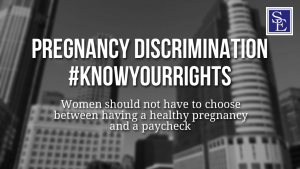Institutions of higher education are often perceived as being ahead of the curve when it comes to issues of equality and progressive treatment of members of protected groups. In reality, this is not always the case — especially when it comes to women working as college coaches or as employees within the athletic departments of universities. In fact, there have been several high-profile instances of employment discrimination lawsuits within athletic departments of several “Power 5” athletic universities have made news in recent years. These high profile lawsuits have resulted in much needed increased public scrutiny of important issues of systemic discrimination within our country’s university athletic departments.
Perhaps most notably is the gender and sex orientation discrimination brought by a former field hockey coach and senior athletic official against the University of Iowa athletic department. In that case, Tracey Griesbaum and her partner Jane Meyer were employed by the University of Iowa’s athletic department. Griesbaum, a former field hockey coach at the University of Iowa, and Meyer, a senior department director, were romantic partners during their tenure at Iowa. Throughout their employment, both women alleged they were subjected to gender and sexual orientation discrimination by department director Gary Barta. Meyer and Griesbaum’s relationship was often scrutinized and used against them in their job performance reviews and assessments, despite being approved by administrative officials through appropriate process. Further, Meyer was passed over for promotions and paid drastically less than male coworkers who had fewer job responsibilities and less experience.
The discrimination escalated when Griesbaum was fired in 2014. The University attributed her termination to allegations that she abused her athletes, but an extensive investigation revealed that these allegations were baseless. As a senior department director who recognized the unlawful behavior, Meyer complained about Griesbaum’s termination, explaining that it was discriminatory and unlawful, and brought up additional instances of gender discrimination occurring within the department. The following day, following her complaints, Meyer was subjected to that same discrimination when she was placed on administrative leave and transferred out of the athletic department. Following Meyer’s unlawful transfer and termination, the two former employees filed lawsuit in a Iowa state court. Through the suit, Meyer and Griesbaum argued that they had been victims of discrimination based on both gender and sexual orientation.
 New Jersey Employment Lawyers Blog
New Jersey Employment Lawyers Blog



